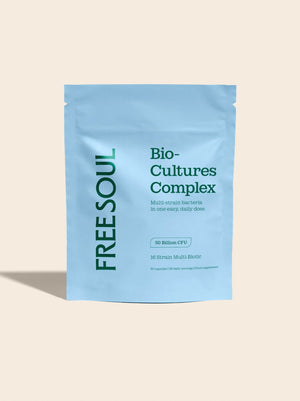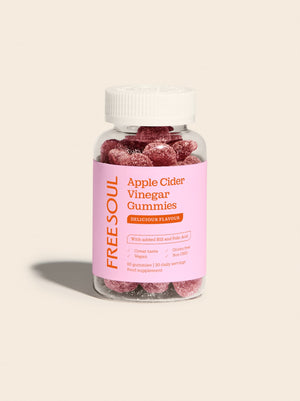Social media will tell you that you need to do about 10,000 steps, perfect the 5-9 before the 9-5, eat for your hormones, for your blood sugar (while, of course, hitting your protein goals) and before you know it, you’re compromising your sanity to try and fit it all in. If you’re anything like me, then we just don’t have time for that!
But what if I told you that habits are just patterns that you repeat, not this overly complex ritual you see online. Have you heard of the saying, ‘you are the sum of your habits’? Meaning, they define you and you have the ability to master them. If you do, they have the potential to change your life and you’ll become the person you always wanted to be.
When it comes to adapting behaviour – I have tried most tips and tricks. During my resident doctor training, those night shifts, on-call shifts, weekend work really screwed with my routine. Only now, having been a doctor for 8 years, I’ve finally understood how to master and elevate my habits as well as make them stick - which is key.
Before we move on, I just wanted to recognise that as each one of you choosing to read this, you’re choosing to learn, better yourself and set yourself up for success. I think that’s great.
So let’s get into it..
What is a habit?
A habit is a pattern or a behaviour that forms after it’s repeated.
Which your brain loves, as it is wired to learn patterns and behaviours.
It usually forms as a solution to a problem that keeps occurring, we then enact the same solution again and again and that’s how we form a habit. This also means, because it’s designed to repeat and be hard-wired into our brains, it can be quite hard to break.
You already have habits or patterns in your life which can positively or negatively impact you. If you wake up every day and press snooze 5 times, that is a pattern and because you repeatedly do it, it becomes who you are. E.g. the person who presses snooze.
And before we get into the nitty gritty of habits, you need to understand who you want to become. What kind of person do you want to be? Because once you start to marry the vision of who you want to be with the patterns you want to learn – your habits will become your identity.
Example:
When the weather became colder and the mornings became darker, I became that person who repeatedly pressed snooze – and then that meant I was the kind of person who couldn’t get out of bed. I don’t want to be the kind of person who presses snooze, procrastinates, doom scrolls and then is late for the rest of the day. I want to be the kind of person that gets out of bed, has a solid morning routine of non-negotiables and things I do for myself.
Instead of saying I could stop hitting snooze and I should stop doom scrolling online, we should be saying, I want to be the type of person who takes care of themselves. The type of person who prioritises their time, a person who aligns their actions with the type of person they want to be.
Breaking the science down behind habits you have:
Each habit is formed of these key elements: a cue, an internal process, usually a craving and response, and a reward.
Cue: phone buzzes at work.
The Internal process that follows…
– craving: you want to see who buzzed.
– response: you pick up the phone and also maybe end up scrolling on social media.
Reward: you solve the problem of who messaged you and feel satisfied.
And say you repeat this behaviour each time your phone buzzes, you then associate the reward with this cue and the stronger it becomes.
You can see how easily habits can form and become automated. What’s important to remember is the reward. Usually with habits that impact you positively, the reward is long term, whereas those that don’t have a positive impact is usually an immediate gratification. So, it’s important to try and break down how we can make those positive habits attractive.
So, how do we elevate our habits?
Step 1: You Need Insight
You need insight or awareness into what your current habits are before you can change them. So, here’s an exercise:
Let’s think about our morning routine and the habits that are embedded. I want you to write down the behaviours you show each morning (and try to be as specific as possible)
We are then going to create a scorecard and rate each habit as positive ‘+’, neutral ‘=’ or negative ‘-’. This is to identify the habits you want to continue and are aligning with the person you want to become vs those that aren't.
Step 2: What Type of Person Do You Want to Be?
I want you to think about the type of person you want to be.
What habits does that person have? Do they not press snooze? Do they use their phone for the first 30 minutes of the day? Do they go to the gym or move their body in the morning? Do they drink their Greens whilst reading 20 pages of their book? Again, be as specific as possible when thinking about the habits you want to incorporate.
Step 3: Make the New Habits Visible, Attractive and Easier
We’ve already discussed that forming new habits takes time, so it’s unlikely to provide instant gratification. We are playing the long game so we need to make it appealing and easy.
You have to put it in front of your face. Instead of trying to include this new habit by making a mental to do list, put it in front of you, in plain sight.
How? Rearrange your house and your environment to set you up for success. You are more likely to succeed when you start thinking about the future you, and start making decisions for her. You need to act like the person who already has this lifestyle and does these habits.
Examples:
If you don’t want to press snooze – keep your alarm on the opposite side of the room so you have to get up out of bed
You don’t want to use your phone for the first 30 minutes of the day - keep it out of your bedroom or put it on DND.
You want to go to the gym in the morning - put your gym clothes out on the floor next to your bed so you take out that decision making process in the morning.
You want to drink your Greens and read 20 pages of your book – put your Free Soul Mango Greens, sippy cup and book in front of the coffee machine.
Step 4: Remove the Temptation (You Cannot Be Trusted)
Make our ’bad’ habits invisible, unattractive and harder.
Get it out of your sight. The things you don’t want to do, the ’bad’ habits that you have, the phone addiction that you have– make it harder for yourself to do these things.
Why? Because you can’t be trusted. Your neural pathways are already formed for those ’bad habits’ so relying on your mind alone and willpower is not enough.
Make it inconvenient for yourself, like it's a chore. You are not going to get a dopamine hit from it because it’s going to be harder for you to do which will dampen down that craving you get (in response to a cue) which then means you’re not going to want to repeat it and hence, break the cycle! BOOM.
Step 5: Track Your Progress
You are no longer allowed to track your progress casually inside your mind. And to be honest, you shouldn’t, because you’re doing a great thing so it should be public and visible.
You need a system or an external process, like a habit tracker, which can help you stay accountable. And I want you to put it somewhere visible. The simple act of ticking something off is so satisfying and pings off your dopamine which is exactly what we want.
Another thing to remember which this external tracker will help with is not breaking the chain. Find someone that will do it with you – a partner/friend/broadcast channel anyone!
Each time you tick it off, remember your why – why am I doing this and it will be reinforced each time you tick. And studies have shown that if you physically record it or report it publicly, you're more likely to stick to it.
Step 6: Create a Plan
You’re more likely to succeed in behaviour change if you are specific about it. Life will get in the way and some days will be more challenging, so you’ll need to have a back up plan.
For example, you want to drink less alcohol in January but you have a party to go to – what you could do is plan to take a non alcoholic beverage with you. In the case you don’t, you turn up and there are no alcohol free options so you end up either feeling super weird while you sip on tap water, or you cave and drink. Having a back up plan is key.
Top tip: DO THE HABITS IN THE MORNING.
Being an early riser will have a ripple effect on the rest of your day - fact!
It triggers a positive change. In the first few hours of the morning, you actually have the ability to focus more, have more willpower and can process much more. It's also the time of the day for you, where you can actually have some control before the day sweeps you away.
Feeling in control of your life and having these positive habits will make you feel better for the present and the future you.
Remember you are the sum of your habits. The opportunity is here, not just to achieve your goals, but to be the person you always wanted to be. Habits help you become that person and you are one decision away from changing your life, becoming the best version of yourself.








